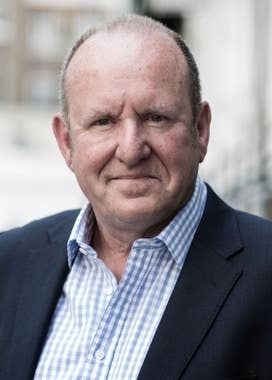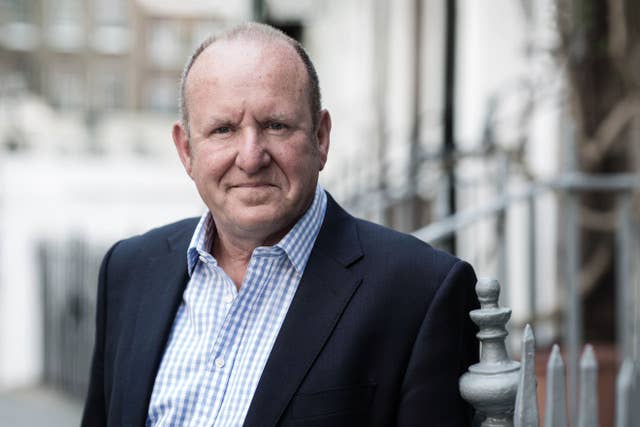Hiro Capital is "determined to fill the post-seed gap" with new €100m fund
Industry veterans will invest in around 20 promising games, esports and digital sports companies by 2021
A new venture capital firm has launched today with plans to pour €100 million into video games, technology and other related projects across the UK and Europe.
Hiro Capital co-founders Ian Livingstone and Luke Alvarez tell GamesIndustry.biz that the full fund has not yet been raised but is "well along the path," with plans for three or four investments within the next couple of months.
The fund is primarily aimed at the UK and Europe, with Alvarez describing the region as "a rich and fertile area" for ambitious tech firms -- according to the team's research, Europe produced 123 PC and console games last year, compared to America's 78 and Asia's 103. However, Hiro Capital is open to projects from other territories.
Hiro Capital is specifically targeting companies in need of Series A and B funding, as opposed to seed finance. The co-founders believe this will help plug a funding gap in the industry that limits the options for startups looking to scale up.
"We feel strongly that there's been this capital gap in our set of industries," says Alvarez. "There's a clear lack of post-seed capital, particularly in Europe. There are lots of entrepreneurs who have made good money and will invest as angels, but very little capital available once a business needs investment of between €1 million and €15 million."
"We're deep tech and deep creative investors, we like businesses that combine the two"
Luke Alvarez, Hiro Capital
Livingstone adds: "We looked at the market and realised the opportunity there. The perception around the games industry is generally poor, often missed by VCs who don't understand the space and don't really attempt to find out more about the space. And so all these opportunities are left untouched -- and particularly the funding gap. People can get seed funding to get off the ground, but there's none of that follow-on fund."
Hiro Capital will invest in games, esports and digital sports, as well as technologies that serve these three sectors. This will include sector-specific applications of the cloud, mobile, streaming, big data, artificial intelligence, wearables, and AR and VR technologies.
Digital sports -- real-world sports "being brought into the digital world through things like wearables" -- might initially seem like an odd fit, given the inherent connection between games and esports. But Alvarez notes that "increasingly these things are converging," observing that sports have become gamified through technology such as fitness wearables and apps that "track and share your performance in a gamified way."
He also points to games like Niantic's Pokémon Go and VR title Beat Saber as prime examples of video games that require players to be more physically active -- much like the Wii in its heyday, he adds -- further strengthening the link between games and digital sports.
"All this new tech coming through is turning our physical movement into data, putting sportspeople into digital and virtual realms, and that's why we see them coming together."

Hiro Capital hopes to make around 20 investments overall, saving 40% of the capital it raises for follow-on funding that can be deployed at a later stage. This will be prioritised for businesses who are doing particularly well. Hiro Capital expects to deploy the entire fund by the first half of 2021.
The team of ten -- led by Livingstone, Alvarez and LoveCrafts co-founder Cherry Freeman -- has already met with around 250 companies this year. Roughly a third of these have been game studios, with the rest split between game-related or sports-related technology. This alone has highlighted the demand for a VC fund filling that post-seed gap.
Hiro Capital estimates its three chosen sectors represent a total value of $200 billion, with video games (including mobile) accounting for around $150 billion. The VC says that's larger than Hollywood, Netflix-style video-on-demand, and the music industry combined -- but it's important to remember how recently they took the lead.
"If you go back ten, twelve years ago, before the App Store launched and a lot of emerging markets got as rich as they are today, there were only a couple of hundred million gamers worldwide, mostly on console and some on PC, mostly in Western Europe, the US and Japan," Alvarez says. "Now we've got our community of three billion players worldwide. They're not just young males; they're men, women, kids, elderly people and everything in between.
"And of course we've got this next wave of stuff happening with device convergence and cross-platform games like Fortnite and Call of Duty, enormous mobile stars like Clash of Clans and so on. That is a relatively new thing and I think the investment community has been slow to catch up. Clearly there have been some very successful European investments in things like Supercell and King, but broadly the investment community has been slow to catch up."
"People can get seed funding to get off the ground, but there's none of that follow-on fund"
Ian Livingstone, Hiro Capital
These sectors can be difficult for generalist VCs to invest in because they lack the specialist knowledge or an understanding of the technologies and business models involved. Hiro Capital's co-founders are confident their specialism, and past experience with investing in such firms (especially Livingstone), puts them in good stead to identify the most promising and deserving companies.
"A lot of investors don't know how to assess a game," says Livingstone. "They've got no idea whether one game is good and another is bad, or the size of the opportunity. Coupled with the predominantly negative mass media perception -- there's always some new bat to beat the games industry up with, so people can be reluctant to invest in this space. We are absolutely determined to fill that gap.
He continues: "Being involved in follow-on capital, we're looking for teams with a lot of skin in the game, some scars on their back, IP that they own, technology that they own, where the creative lead is on par with the business lead in being able to scale something successfully. All the companies I've invested in as an angel have ticked those boxes, like Playdemic, Fusebox and Flavourworks. They need to understand the business of games, the back-end technology, the importance of data. It's a long, long list of stuff -- but this is a people business, and we're investing in people primarily."
Alvarez adds that, while there may be exceptions, Hiro Capital is unlikely to back a single game. Instead, the firm is looking for studios with "resilience and repeatability," companies that could eventually file an IPO or sell for a high valuation if they so choose.
"We certainly like cross-platform and we like recurring revenue models -- that's not an absolutely hard rule but it's definitely a strong bias," he says. "And we definitely want people doing something new. We don't want to see another match-three game or just another 'me too' concept.
"We want people who are ideally creating a real strong innovation, perhaps a new category or subcategory. Ideally, although not necessarily, creating some technology that underpins that innovation. We are deep tech investors as well as deep creative investors, and we like businesses that combine the two."
The €100 million is just the start for Hiro Capital. While the company is concentrating on this first fund and the next 24 months of investments, the co-founders fully expect a second in the future, especially if the finance gap remains.
"Games companies are under-capitalised," says Livingstone. "A lot of the owners have to trade away their IP for project finance or they have to sell out. Some of the biggest blockbusters the UK produces are foreign-owned, and we want to help people get further up the value chain of ownership before they decide to sell. This is a partnership going forward to help increase the value of the games industry within the UK and Europe."

